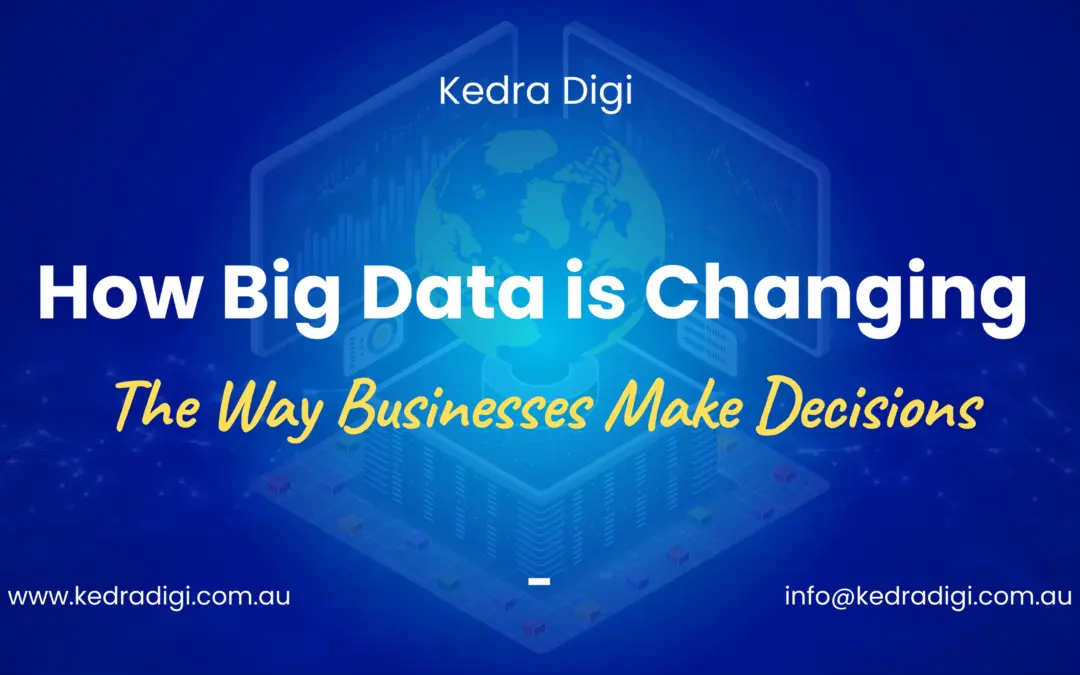How Big Data is Changing Decision-Making in Business?
Big Data is completely changing how companies think, act, and grow. Whether you’re shopping online, streaming your favorite show, or even visiting the doctor, there’s a good chance Big Data is working behind the scenes to make your experience smoother and more personal. Let’s dive into what this means for businesses and why it matters to you.
What is Big Data?
Think of Big Data as a huge collection of information coming in from everywhere. Websites, apps, sensors, social media, and more. It’s not just about having a lot of data, but also about how quickly it arrives and how many different forms it takes. Numbers, words, pictures, and even sounds—all of it can be part of Big Data.
Why Does Big Data Matter for Business Decisions?
Gone are the days when decisions were made based on hunches or last year’s reports. With Big Data, companies can:
- See what’s happening: Get a complete view of customer habits, market shifts, and business performance.
- React on the spot: Notice trends or issues as they happen, not after the fact.
- Make confident choices: Use real evidence instead of guesswork to guide strategies.
How Big Data Transforms Decision-Making
1. Sharper Customer Insights
Every click, like, and purchase is a clue about what customers want. By connecting these dots, businesses can offer personalized suggestions, send targeted deals, and even predict what you might need next. For instance, when you binge-watch a series, streaming platforms use that info to recommend your next favorite show. Online stores do the same with shopping carts and wish lists.
2. Real-Time Operational Improvements
Big Data isn’t just for marketing teams. It’s helping companies run smoother behind the scenes. Take delivery services: they use real-time traffic and package data to plan the fastest routes, saving time and money. In factories, sensors track equipment health so maintenance teams can fix problems before they cause breakdowns.
3. Smarter Strategic Planning
Instead of relying on old data, businesses can now spot fresh trends and test new ideas quickly. This helps them pivot when markets change or when customers want something new. It’s like having a crystal ball, but powered by real facts.
4. Risk Management
Big Data is a powerful ally when it comes to spotting trouble early. Banks use it to flag suspicious transactions instantly, and insurance companies crunch the numbers to set fairer prices and spot fraud before it happens.
Real-World Examples
- Deepnote brought all its customer data together to understand how people use its product, which helped them improve marketing and boost sign-ups.
- Payzen uses smart analytics to create payment plans that work for both hospitals and patients, making healthcare bills less stressful.
- Retailers study shopping patterns to stock shelves with what’s actually in demand, cutting down on waste and missed sales.
What About Challenges?
Big Data isn’t magic—it comes with its own set of challenges:
- Privacy concerns: Companies need to handle personal data with care and respect.
- Data quality: If the information is messy or wrong, the insights won’t help.
- Finding talent: It takes skilled people to turn raw data into useful ideas.
Actionable Tips for Businesses
- Start simple: Even small businesses can collect and learn from customer feedback or website stats.
- Use the right tools: There are plenty of user-friendly analytics platforms out there.
- Focus on what matters: Always ask how data can help you serve your customers better or run more efficiently.
Summary
Big Data is changing the game for businesses everywhere. By making sense of massive amounts of information, companies can understand customers better, work more efficiently, and stay ahead of the competition. The bottom line? Smarter decisions lead to better results. Get a free call with our Data Science Experts.

